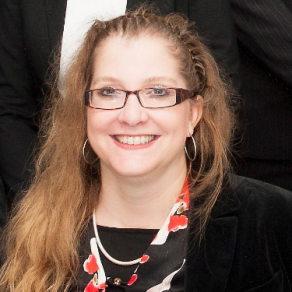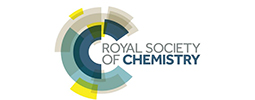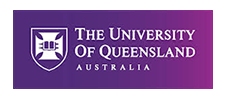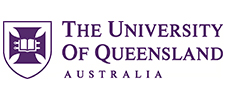37APS on the Sunshine Coast
We would love to see you this November for the Australasian Polymer Symposium! This year we will be holding the symposium at the Novotel Twin Waters Resort, located approximately 7 minutes from the Sunshine Coast Airport. Register your attendance now!
Introducing Our PLENARY Speakers

Professor Bert Meijer
The research of Bert Meijer focuses on the design, synthesis, characterization and possible applications of supramolecular systems with unprecedented properties and functions. It is founded on the principles of synthetic organic and polymer chemistry and aims at finding solutions to challenges in materials science and life sciences. Throughout his career Bert Meijer has explored and developed functional supramolecular polymers as a new class of materials. Via advanced molecular design and synthesis he has realized systems in which monomeric units self-assemble into long supramolecular polymeric chains, resulting in materials displaying unique dynamic properties that were thought to be exclusively reserved for macromolecules. Current research in the Meijer lab focuses on fundamental studies to understand complex multi-component supramolecular systems including the assembly behavior into supramolecular polymers. These insights are used to explore the potential use of supramolecular polymers as mimics of biological tissue, using a modular approach that allows for easy adjustment of their dynamics to external stimuli. Moreover, supramolecular materials are studied to create new avenues for adaptive soft materials and materials for nanotechnology and energy.
Professor Martina Stenzel
Martina Stenzel studied chemistry at the University of Bayreuth, Germany, before completing her PhD in 1999 at the Institute of Applied Macromolecular Chemistry, University of Stuttgart, Germany. She started as a postdoctoral fellow at UNSW in 1999 and is now a full Professor in the school of chemistry as well as co-director of the Center for Advanced Macromolecular Design (CAMD)Her research interest is focused on the synthesis of functional nanoparticles for drug delivery applications. Martina Stenzel published more than 300 peer reviewed papers mainly on polymer and nanoparticle design.
She is scientific editor of Materials Horizons and serves currently on a range of editorial boards. She received a range of awards including the 2011 Le Fèvre Memorial Prize of the Australian Academy of Science and the H.G.Smith Medal. In 2018, Martina has been elected as a fellow to the Australian Academy of Science and is currently the chair of the National Chemistry Committee of the Academy.
Professor Natalie Stingelin
Natalie Stingelin (Stutzmann) FRSC is a Full Professor of Materials Science at the Georgia Institute of Technology, with prior positions at Imperial College London; the Cavendish Laboratory, University of Cambridge; Queen Mary University of London, the Philips Research Laboratories, Eindhoven; and ETH Zürich. She was awarded a Chaire Internationale Associée by the Excellence Initiative of the Université de Bordeaux (2016); the Institute of Materials, Minerals & Mining’s Rosenhain Medal and Prize (2014); and the Chinese Academy of Sciences (CAS) President’s International Fellowship Initiative (PIFI) Award for Visiting Scientists (2015). While at Imperial College, she was recipient of a European Research Council (ERC) Starting Grants, as well as an ERC Proof of Concept grant. She was the Chair of the 2016 Gordon Conference on ‘Electronic Processes in Organic Materials’ and the Zing conference on ‘Organic Semiconductors’. In 2018, she organized the 14th edition of the International Conference of Organic Electronics (ICOE). She has published >180 papers in the area of organic electronics & photonics, bioelectronics, physical chemistry of organic functional materials, and smart inorganic/organic hybrid systems.

Professor Patrick Stayton
Patrick Stayton serves as the Distinguished Career Professor in the Department of Bioengineering at the University of Washington. He received his B.S. in Biology (summa cum laude, Chemistry minor) from Illinois State University, his Ph.D. in Biochemistry from the University of Illinois, and was a Postdoctoral Research Associate at the Beckman Institute for Advanced Science and Technology, also at the University of Illinois.
Dr. Staytonis the founding Director of the Institute for Molecular Engineering and Sciences(http://www.moles.washington.edu), and the Center for Intracellular Delivery of Biologics.His owneclectic research group works at the interface of fundamental molecular science and applied molecular bioengineering. His laboratory develops new materials for application to unmet medical needs in the therapeutics, diagnostics, and regenerative medicine fields. He has published over 250scientific papers. Dr. Stayton has a strong interest in translating the group’s research, has been awarded many patents, and is a co-founder of the startup companies Jewel Biotherapeutics based their cell and drugamer therapy work, PhaseRxInc. based on his group’s biologic drug delivery work, and Nexgenia Inc. based on their biopharma manufacturing technologies.
Dr. Stayton has been elected as a Fellow of the American Institute for Medical and Biological Engineering, and has been the recipient of the Clemson Award from the Society For Biomaterials and the CRS-Cygnus Recognition Award from the Controlled Release Society. He servedas Co-Chair of the Gordon Conference on Drug Carriers in Medicine and Biology in 2010. He has also been awarded the College of Engineering’s Faculty Innovator Award, the Distinguished Teacher and Mentor Award from the Department of Bioengineering, and an Honorary Award from the College of Engineering’s Minority Science and Engineering Program. He has also been elected to the Washington State Academy of Sciences. Many graduate students and postdoctoral fellows trained in his lab and gone on to impactful academic and industry careers.
Professor Christopher Barner-Kowollik
Christopher Barner-Kowollik, an Australian Research Council (ARC) Laureate Fellow, received a PhD in Physical Chemistry (Göttingen University). After postdoctoral research and academic positions at the Centre for Advanced Macromolecular Design at the University of New South Wales in Sydney, he was appointed Full Professor of Polymer Chemistry as an ARC Professorial Fellow in 2006. From 2008 to 2017 he held the chair for Macromolecular Chemistry at the Karlsruhe Institute of Technology (KIT) and is currently Professor of Materials Science at the Queensland University of Technology (QUT) with an adjunct appointment at the KIT. His research interests include macromolecular precision design in solution and on surfaces via rapid and wavelength-orthogonal light-induced methodologies, advanced functional photoresists for 3D laser lithography, biomimetic materials, the design of hybrid and adaptive polymer materials at the interface of polymer chemistry and (bio)materials science, advanced macromolecular characterization via high resolution hyphenated mass spectrometric techniques and mechanistic investigations into photochemical processes. Prof. Barner-Kowollik has delivered over 200 keynote and plenary lectures, published over 600 peer reviewed papers and received numerous awards for this work, most recently the Erwin-Schrödinger Award of the Helmholtz Association for his work on 3D printing for biological applications. He is member of several editorial boards and editor-in-chief of the journal Polymer Chemistry (Royal Society of Chemistry).
Program At A Glance
Key Dates
| Call for abstracts close (oral) | 26 Jul 2019 |
| Notification to authors (oral) | 28 Aug 2019 |
| Draft program available | 4 Oct 2019 |
| Call for abstracts close (poster) | 6 Sept 2019 |
| Applications close (poster with short oral) | 6 Sept 2019 |
| Notification to authors (Poster + Poster with short oral) | 6 Sept 2019 |
| Early Bird registration close | 6 Sept 2019 |





















